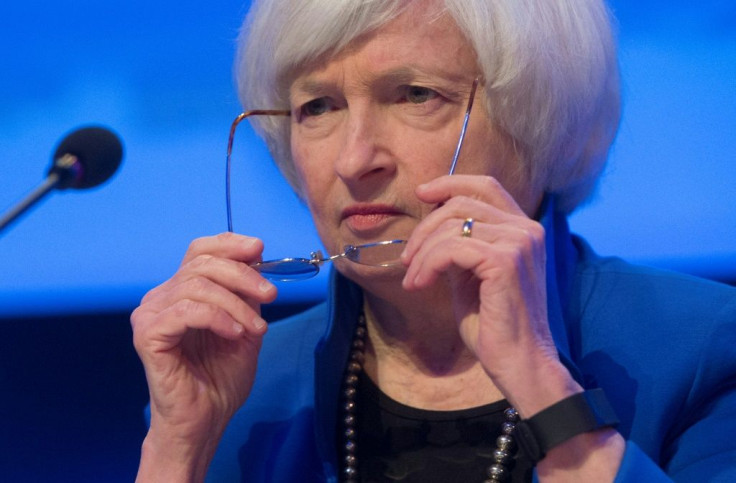After The Fed, Yellen Would Be A Historic First At Treasury
In selecting former Federal Reserve chair Janet Yellen to be the first female treasury secretary, president-elect Joe Biden chose a progressive macroeconomist focused on unemployment who supports fiscal stimulus and tackling climate change.
The 74-year-old made history when she became the first female head of the world's most powerful central bank in 2014, and will repeat the achievement if confirmed by the Senate to head the US Treasury.
That will put her in the center of the ongoing economic storm in the United States, which has seen a record slowdown in annualized growth and tens of millions of layoffs as it grapples with the world's largest coronavirus outbreak.
Unless Congress acts before Biden's January inauguration, Yellen will likely take the lead on trying to break an impasse on passing another stimulus measure to help the country's economic recovery -- a job she's signaled she's ready to do.
"Fiscal policy has a very important role to play now," Yellen, currently a distinguished fellow at the Brookings Institution in Washington, said recently. "I believe it's essential."
A passionate economist with a scholarly, sometimes jargon-laden manner of speech, Yellen is married to Nobel Economics Prize-winner George Akerlof.
Her academic and public service background sets her apart from current Treasury Secretary Steven Mnuchin, who spent years as an investment banker and film producer.
Her expertise in the job market at a time when the pandemic has doubled unemployment to 6.9 percent -- along with the respect lawmakers have for her efforts at the Fed after the 2008-2010 global financial crisis -- are considered assets.
She's close to the progressive economic elite, and Yellen has gone beyond Biden by calling for a carbon tax to fight climate change.
"We need public policy oriented toward making a big difference on climate change," she said recently.

As chair of the central bank from 2014 to 2018, she was seen as a "dove" disinclined to raise rates and rather keep them low to support employment.
That prompted criticism from outgoing president Donald Trump, who said on the campaign trail in 2016 the ultra-low interest rate policy created "a big, fat ugly bubble" for Democrats.
Yellen knows current Fed Chair Jerome Powell, who served as her lieutenant when she ran the central bank and whose term ends in 2022.
After taking office in 2017, Trump ousted Yellen from the Fed, making her one of the few chairs not to stay in office for a second term.
The daughter of a Jewish doctor, Yellen, who still speaks with the accent of her native Brooklyn, graduated from Yale University and came and went from the Fed, first as an economic researcher and then in loftier roles, spending a third of her career there.
She also served as an economic advisor to former president Bill Clinton between 1997 and 1999, taught at the University of California, Berkeley and ran the San Francisco Federal Reserve Bank.
In 2010, she became deputy to former Fed chair Ben Bernanke, overseeing the large monetary support plan to help the US economy out of the 2008-2010 global financial crisis.
When she succeeded him four years later, Forbes magazine dubbed her the second most-powerful woman in the world, behind German Chancellor Angela Merkel.
Affable and small in stature with her face framed by a helmet of white hair, Yellen never lost her composure in the face of attacks from Republican lawmakers.
Early in Trump's term, she didn't hesitate to warn of the risks tax cuts like the one he was proposing would have on the budget deficit.
With the US budget deficit soaring, that will be an issue she must face again.





















